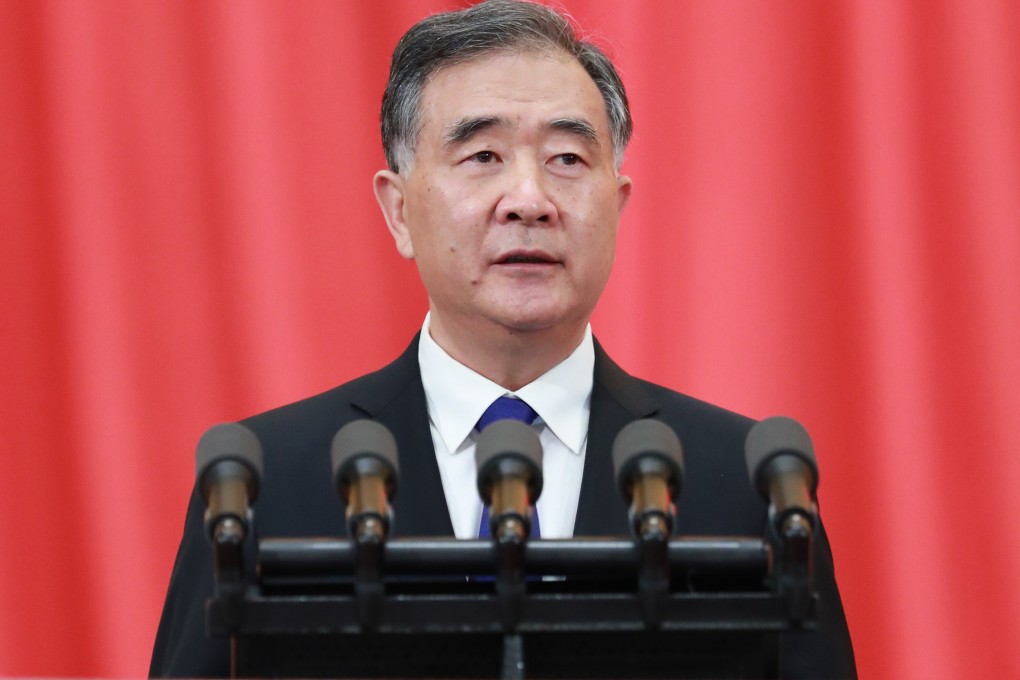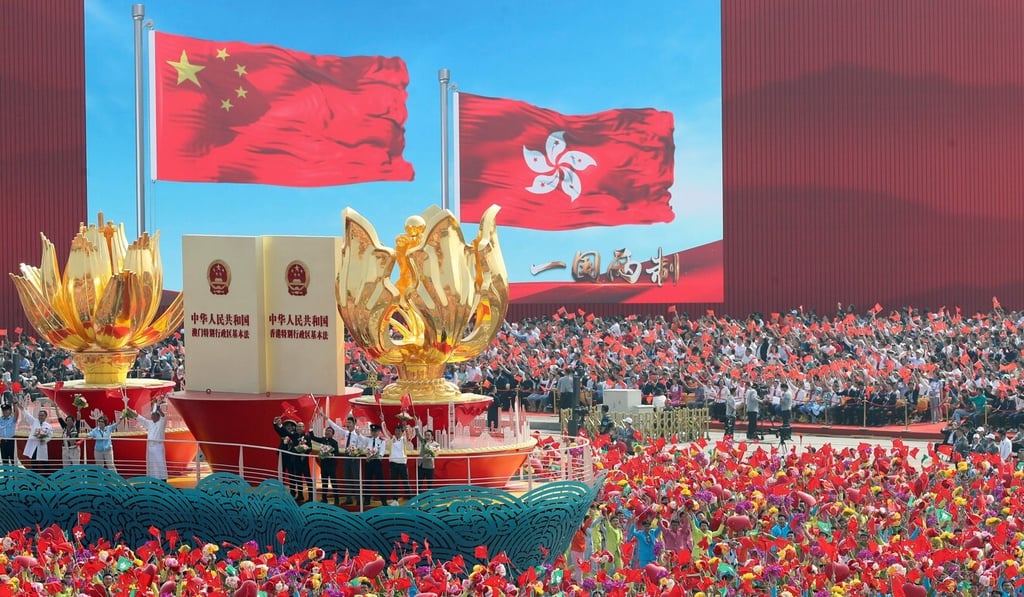Two Sessions 2020: head of China’s political advisory body stresses Hong Kong delegates’ political responsibility, but no mention of local governance principles
- Wang Yang makes call in annual work report, but omits mention of ‘Hong Kong people governing Hong Kong’ or the city’s high degree of autonomy
- Chairman also avoids mention of bedrock principle of cross-strait affairs, and decries foreign interference, hitting out at US legislation targeting rights

The head of China’s top political advisory committee has called on Hong Kong delegates to strengthen their sense of political responsibility to more firmly uphold the “one country, two systems” policy, but he omitted mention of two key concepts about local governance and a bedrock principle of cross-strait affairs.
Wang Yang made the call in the annual work report he delivered as chairman of the Chinese People’s Political Consultative Conference (CPPCC) Standing Committee on Thursday. But he did not mention the principle of “Hong Kong people governing Hong Kong” or the city’s “high degree of autonomy”.
Neither did Wang refer to the 1992 consensus – a verbal understanding reached by unofficial representatives of Beijing and Taipei that there is only “one China”, but each side would have its own interpretation of what constitutes “China”.

Wang said that Hong Kong and Macau delegates must improve their sense of political responsibility.
“With a view to ensuring that the policy of one country, two systems is firmly upheld over the long term, we will help Standing Committee members representing Hong Kong and Macau to build a stronger sense of mission and political responsibility,” he said.
“[We also] firmly support the improvement of systems and mechanisms for enforcing China’s constitution and the Basic Laws of [Hong Kong and Macau].”